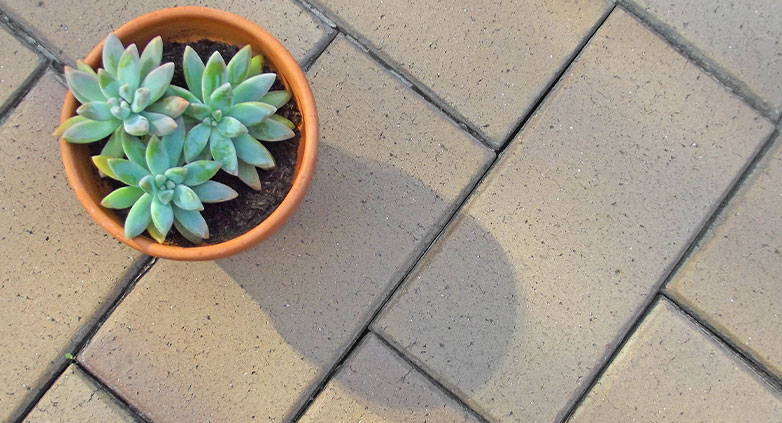Stamped asphalt driveway – is it a suitable choice for you?
Stamped asphalt driveways are revolutionizing property upgrades, offering a stylish and affordable solution for homeowners and businesses. Emerging in the mid-1990s, this technique has gained popularity for its ability to combine the durability of asphalt with the aesthetic appeal of more luxurious materials.
Stamped asphalt driveways are a fusion of functionality and style, offering an affordable yet elegant alternative to traditional pavers. This technique involves imprinting patterns onto freshly laid asphalt, followed by coloring to imitate the look of brick or stone. It’s a durable, low-maintenance choice that withstands diverse climates and heavy use. The process allows for creative designs and can include safety features like non-slip textures. Unlike individual pavers, stamped asphalt is more efficient to install, resulting in less disruption and lower costs. Its ease of maintenance, involving simple resealing, adds to its appeal as a practical, stylish paving solution.
Interested in transforming your driveway or parking area with stamped asphalt? Read on to learn more about how this innovative paving solution can enhance the curb appeal and functionality of your property.
What is a stamped asphalt driveway?
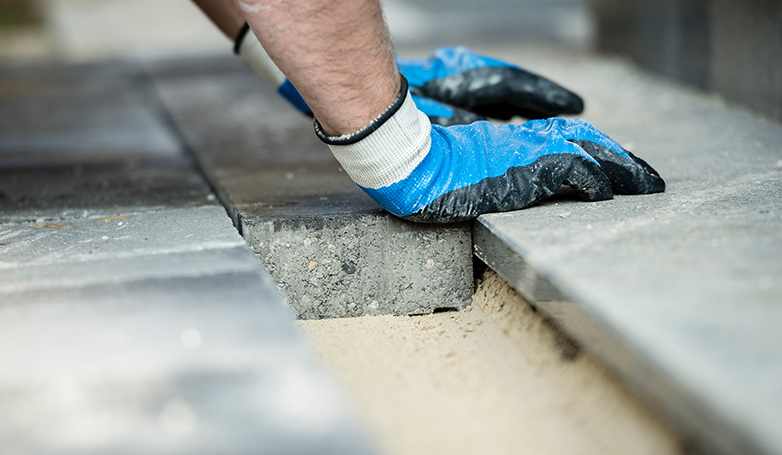
Asphalt stamping driveway is a decorative material created by converting ordinary asphalt into a style similar to the appearance of brick, slate, or stone. The procedure involves making an imprint into an asphalt pavement surface using a combination of heat, a plate compactor, and a stamping template. It gives your landscape a very stylish aesthetic appeal.
With stamped asphalt, you can add a pattern into your asphalt driveway paving and color it to fit your desired appearance and landscape. Therefore, if you want something that offers flexibility during the winter season, lasts the test of time, and has a fantastic look that is a total eye-catcher, this is really a game-changer for you.
Stamped or imprinted asphalt driveway, what really it is?
Let’s explore stamped or imprinted asphalt driveways – what they are and how they stand out. Then, we’ll delve into the imprinting process, benefits, and practical aspects like color choices and maintenance.
Understanding Stamped Asphalt Driveways
Stamped asphalt is a sophisticated texturing technique applied to surfaces like driveways and parking lots. This method transforms the look of regular asphalt, mimicking the appearance of materials such as stone, brick, or slate. The process involves imprinting a pattern onto the asphalt base using a grid, typically made of wire materials, to create a variety of textures.
The Imprinting Process and Its Benefits
After imprinting the desired design, the surface is coated with a colored epoxy to ensure durability and safety. The flexibility of heated asphalt makes it ideal for imprinting various patterns, contributing to the surface’s longevity and toughness. This process can be applied to both new asphalt installations and newer existing surfaces.
Color Options and Maintenance
Unlike traditional asphalt surfaces, which are predominantly dark, stamped asphalt can be painted in a range of colors, from subtle to bold. With proper maintenance, these colorful designs can last for many years.
Benefits of stamped asphalt
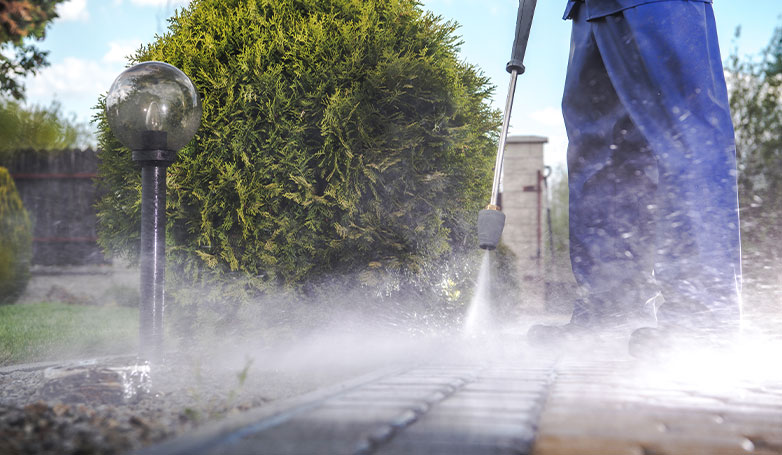
There are many reasons why you should want stamped asphalt driveway parking lots, etc., for your residential or commercial property, as it has some advantages over traditional interlocking systems, which involve brick, stone, or slate.
Cost-effective
Asphalt is much less expensive and faster to install and stamp, unlike brick and stone which are expensive and require lots of time to install. In addition, since asphalt is less porous and more flexible compared to most hardscape pavers, it requires less maintenance and fewer repairs, making you save on unplanned costs.
Durability
Asphalt driveways, parking lots, and other paving surfaces are highly sturdy, resilient, and long-lasting. Also, stamped asphalt paving surface is flexible and resistant to cracking caused by substrate moving, and since it does not change over time, the resulting surfaces are more resilient than stone and brick.
Unlike conventional materials such as brick and stone, stamped asphalt is composed of a single continuous surface, making it more resistant to erosion, shifting, and weed growth. The Epoxy film, applied to the imprinted asphalt, plays a crucial role in trapping harmful sun rays. This not only enhances the appearance but also extends the life of the asphalt.
Customizable
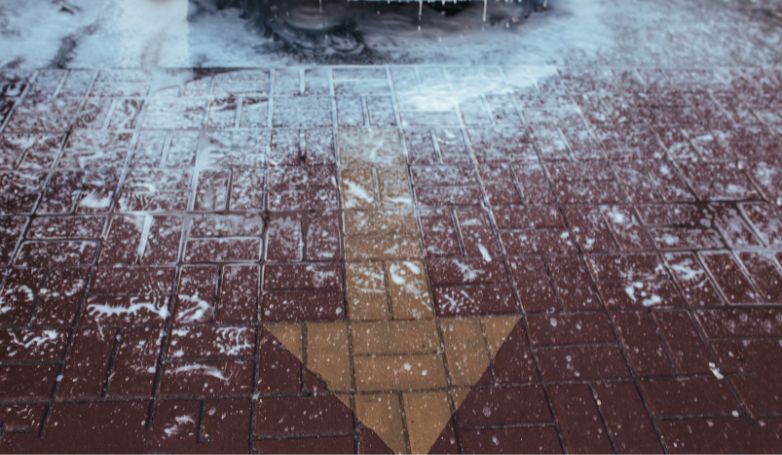
Asphalt stamping can act as a decoration to small or large areas of your driveways, walkways, parking lots, etc. You can even customize stamped asphalt to showcase your company logos and many other eye-catchy designs that add beauty to your residential or commercial properties.
With stamped asphalt, you can choose from the varieties of colors, interlocking patterns, and textures to create a look that complements your property.
The wide variety of patterns and colors of a stamped asphalt driveway can be combined to create amazing and eye-catching designs that improve the look of your house, adding value to it.
Easy to install
Stamped asphalt is an excellent alternative to more expensive products such as pavers and stamped concrete. It is quicker, less labor-intensive, and easier to install compared to other decorative pattern paving surfaces without compromising durability, aesthetics, and quality. In less than 48 hours, you can install an asphalt driveway or other pavement that will be safe to use almost instantly.
Lower maintenance cost
Asphalt stamping can last for a good number of years, and you can easily re-coat it, resulting in a lower overall cost of maintenance. The surface also holds up to temperature fluctuations better than pavers, which usually shift during freeze-thaw cycles. There’s also no need to worry about vegetation that commonly grows through cracks in conventional brick.
What is the cost of installing a stamped asphalt driveway?
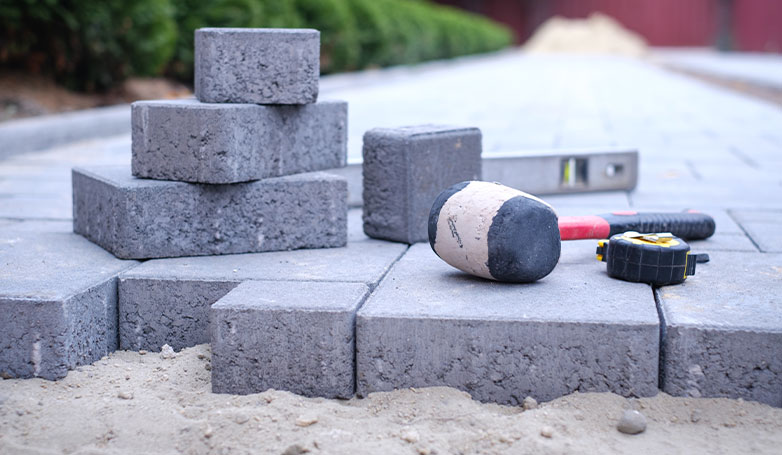
Exploring the expenses associated with installing a stamped asphalt driveway, let’s break down the factors influencing the costs. Delving into varied elements in cost estimation, we’ll provide a comprehensive overview of the cost breakdown for these unique driveways, both for fresh installations and overall maintenance considerations.
Factors Affecting Installation Costs
When determining which product or service to use in any project, particularly home improvement projects, price, and cost play a significant role.
The cost of installing an asphalt stamping driveway differs based on the labor, materials, and prep work required. For instance, if the driveway requires resurfacing or other preparation work.
Varied Elements in Cost Estimation
In addition, the quantity of the decorative asphalt used in the driveway, the size of the driveway, and the precise pattern and trim selected are all factors to consider. Because of these variables, estimating the cost of building a stamped asphalt driveway can be challenging. So, it would be best if you speak with a reputable paving contractor about your requirements, and they will provide you with a quote for the job.
Cost Breakdown for Stamped Asphalt Driveways
However, it can cost up to $3-$9 a square foot to imprint and paint a pattern on an existing or new asphalt driveway based on the precise pattern and trim selected, the extent of pavement stamped, and the level of prep work and resurfacing needed. This estimate is for imprinting the asphalt topcoat.
Costs for Fresh Installations
Also, it can take up to $5-$12 a square foot to build a stamped driveway from afresh depending on the site prep required, local rates, and any challenges, such as slopes, curves, etc.
How long does it take to install a stamped asphalt driveway?
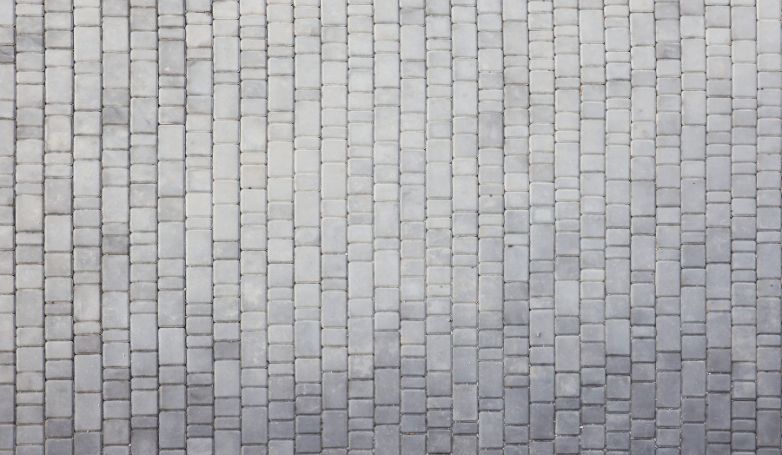
The amount of prep work needed primarily determines the length of time it takes to build a new stamped driveway. For instance, ripping out an existing driveway and using gravel to make the correct pitch and grade add more time to the work.
Contractors can complete many driveways in two days or less, and they can be ready for use nearly instantly after preparing the site.
Stamped asphalt takes less time, effort, and money to install than other decorative pattern paving surfaces. Furthermore, you can build it on existing asphalt that is in excellent condition, saving money on pavement removal.
In comparison to conventional surfaces such as brick pavers, the asphalt foundation offers superior stability and longevity. Besides, a stamped asphalt driveway is simpler, quicker, and less laborious to install when compared to other decorative paving surfaces.
How long does a stamped asphalt driveway last?
When it comes to asphalt longevity, many factors play a role in determining how long it will last. These factors include the quality of installation, the usage they get, the climate, and how well you take care of it.
The better treatment you give your asphalt driveway, like most things, the longer it will last.
A seasoned contractor can build an asphalt driveway adequately, and it can last up to 20 years while also being easily repairable. There’s no reason why your asphalt driveway shouldn’t last 30 years if a competent contractor does their job effectively and you, the property owner, do your part in maintaining it.
How you can care for your asphalt stamping driveway
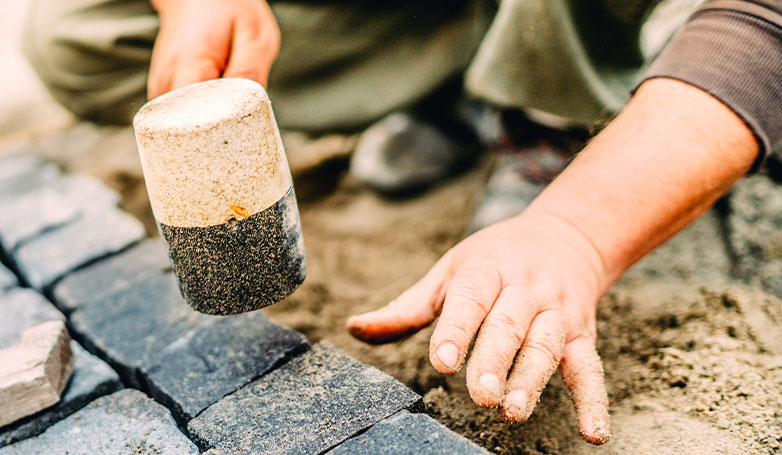
It is not just enough to install your imprinted asphalt driveway. Give proper care to it so that the driveway can last for the expected number of years. If you fail to take care of your stamped driveway, it will begin to wear out within a short time, which can call for costly repair work. Below are a few tips on how you can adequately care for your stamped driveway.
Routine cleaning
To initiate this process, periodically sweep the stamped asphalt. This helps remove loose debris and prevents it from embedding into the surface. Following this, a thorough wash with a garden hose becomes paramount, effectively eliminating finer particles and preventing the formation of stubborn stains. For enhanced cleanliness, employing a push broom alongside a mild detergent ensures that any residual grime is gently lifted away. This leaves your driveway not only visually pleasing but also resilient against the gradual wear and tear of daily use.
Applying protective sealer
You can also apply a protective sealer to block chemicals, grease, dirt, oil, and other substances from penetrating your stamped asphalt driveway. The sealer also makes it easier to have the stamped asphalt cleaned, and it prevents color fading caused by UV exposure. For the best result, you can reseal your stamped asphalt every 2-3 years, based on your weather conditions.
Additional Tips
- Do not use deicing salts on outdoor surfaces, especially during the winter months after installing the driveway. Deicing salts or drip-off from parked vehicles usually cause portions where decorative asphalt sealers fail.
- Do not allow automobile traffic on your stamped driveway for at least three days after installation.
- Always ensure to limit heavy-duty truck from accessing your driveway
- Avoid heavy parking trucks for a long time
- Avoid the use of antifreeze, gasoline, oil, or transmission fluids on asphalt
What is the process of asphalt stamping?
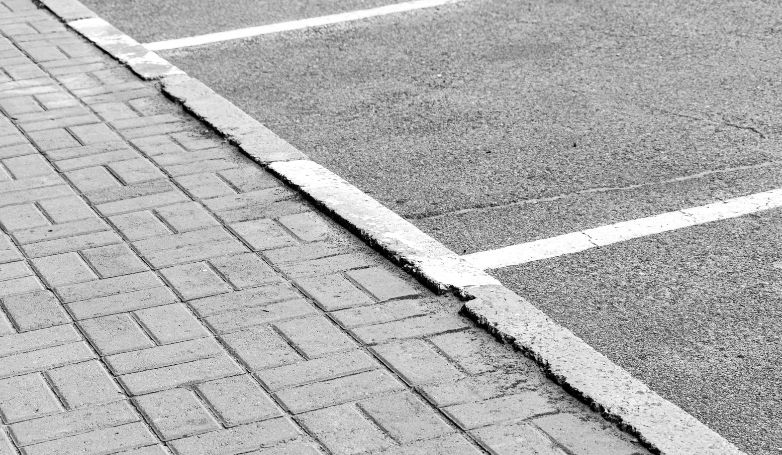
The asphalt stamping process, applicable to both newly constructed and existing surfaces, follows a consistent set of steps. The initial phase involves heating the pavement until it becomes malleable, a crucial step for the imprinting procedure.
Imprinting the Desired Pattern
A template featuring the chosen pattern is then pressed firmly against the heated asphalt and swiftly removed. This meticulous step is repeated multiple times to ensure a successful imprinting of the selected design onto the asphalt surface.
Sealcoating for Texture, Color, and Protection
Post-imprinting, sealcoating is applied to achieve the desired texture and color of the stamped asphalt. Beyond aesthetics, it serves a protective role, safeguarding the fresh asphalt from potential damage caused by sunlight and weather conditions.
The Modernizing Impact of Stamped Asphalt Driveways
When executed with precision, a stamped asphalt driveway proves to be a transformative and contemporary addition to various properties and landscapes. Its combination of aesthetic appeal and functional durability makes it a noteworthy choice for enhancing both the visual and practical aspects of outdoor spaces.
Can I still imprint and texture my existing asphalt driveway?
The answer is yes, as long as your current asphalt driveway is in good shape. Even if your driveway needs fixes first, imprinting old asphalt and partial patches produce a nearly seamless cover for deteriorating asphalt. After priming and prepping the current asphalt, you can apply a polymer-infused cement mix to give your existing and aged driveway a fresh new look.
FAQs about Stamped Asphalt Driveway
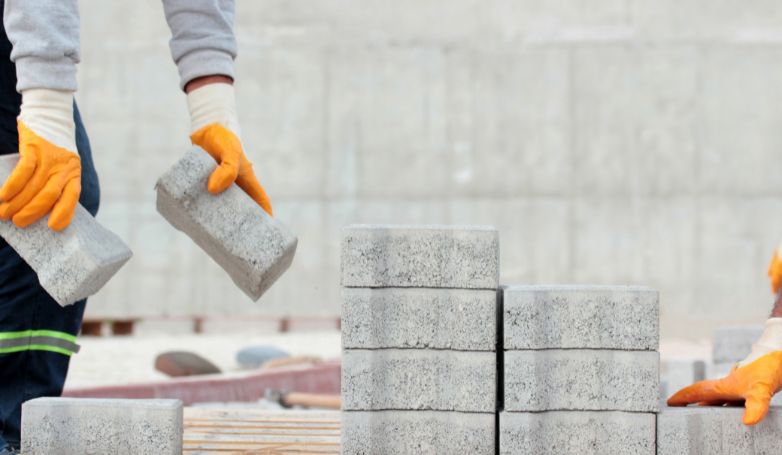
Stamped asphalt driveways offer a unique and visually appealing alternative to traditional surfaces. Here are some frequently asked questions to help you understand the key aspects of stamped asphalt driveways.
What is the difference between stamped asphalt and concrete?
Stamped asphalt and concrete are both popular choices for driveways, but they differ in composition and appearance. While concrete is made from a mixture of cement, water, and aggregates, stamped asphalt is regular asphalt that undergoes a stamping process to mimic the appearance of various materials, such as brick or stone. The stamped asphalt process provides a cost-effective way to achieve decorative effects without sacrificing durability.
Is an asphalt driveway cheaper than concrete?
In general, asphalt driveways tend to be more cost-effective than concrete. The installation costs for asphalt are often lower, and maintenance expenses can be less over time. Additionally, asphalt is quicker to install, allowing for faster use of the driveway compared to the curing time required for concrete. However, it’s essential to consider the specific needs of your project and your aesthetic preferences when choosing between the two materials.
Is an asphalt driveway worth it?
The value of an asphalt driveway depends on various factors, including your budget, aesthetic preferences, and maintenance considerations. Asphalt driveways are known for their durability and flexibility, which allows them to withstand freeze-thaw cycles better than concrete. Regular maintenance, such as sealcoating, can extend the lifespan of an asphalt driveway. If you’re looking for a cost-effective and visually appealing solution, stamped asphalt driveways can be a worthwhile investment, providing a durable and attractive surface for your property.
Conclusion
Acquiring a stamped asphalt for your residential or commercial driveway can be pretty beneficial due to its beauty and strength. Stamped asphalt has the same aesthetic appeal as hand-laid materials like bricks, slate, and stone, but at a lower cost. Considering how important it is to save money when it comes to improving your home, It can be advantageous if you opt for stamped asphalt.

